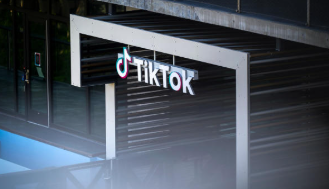In a court filing on Monday, TikTok warned that if the well-known app is essentially shut down in the US on January 19 due to national security concerns about its parent company based in China, U.S. small businesses and social media creators would lose $1.3 billion in revenue and earnings in just one month.
According to the court document, Blake Chandlee, president of TikTok’s global business solutions, stated that those figures would only rise if the stoppage lasted more than a month.
Chandlee’s statement coincided with his firm’s request to a federal appeals court to temporarily halt a rule that would force internet providers and app stores run by Google and Apple to stop supporting TikTok on January 19 unless its parent company, ByteDance, sold the app.

ByteDance and TikTok intend to petition the Supreme Court to reverse a recent decision by the U.S. Court of Appeals for the District of Columbia Circuit that upheld the statute.
In its request for a temporary injunction, TikTok and ByteDance stated that the Supreme Court, as the sole court with appellate jurisdiction over this matter, should be given the chance to choose whether to examine this extremely significant case.
If approved, the injunction would keep the app running until the Supreme Court makes a decision on whether to consider the appeal.
Additionally, the brief contended that “an injunction is especially appropriate” as it will allow the new administration of President-elect Donald Trump, who takes office on January 20, to determine whether or not to implement the legislation.
Chandlee stated that even if the bans are reversed after only one month, American small companies alone will lose over $1 billion in income if TikTok is essentially shut down in the US in January.
“TikTok itself would lose 29% of our targeted global advertising revenue for 2025, and nearly two million creators in the United States would suffer nearly $300 million in lost earnings,” Chandlee said.

According to him, over 7 million American accounts were using TikTok for commercial purposes as of November.
Citing an Oxford Economics economic impact analysis for the firm, he said, “69% of these businesses say that using TikTok has led to increased sales for their businesses in the last year, and 39% say that access to TikTok is critical to their business’s existence.”
In the filing, Chandlee also stated that the advertising, marketing, and “organic reach on TikTok” of those companies added $24.2 billion to the U.S. GDP in 2023, with TikTok’s own activities contributing an additional $8.5 billion.
Following worries about ByteDance’s purported ties to the Chinese government, Congress approved and President Joe Biden signed the bill that TikTok wants blocked for the time being last spring.
In a unanimous decision on Friday, a three-judge panel of the District of Columbia appeals court dismissed ByteDance’s claim that the ban would infringe upon the First Amendment rights of 170 million app users in the United States or other constitutional provisions.

In its written opinion, the panel stated that TikTok “never squarely denies that it has ever manipulated content at the direction of the” People’s Republic of China and that the U.S. government “offered persuasive evidence demonstrating that” the divestment law “is narrowly tailored to protect national security.”





